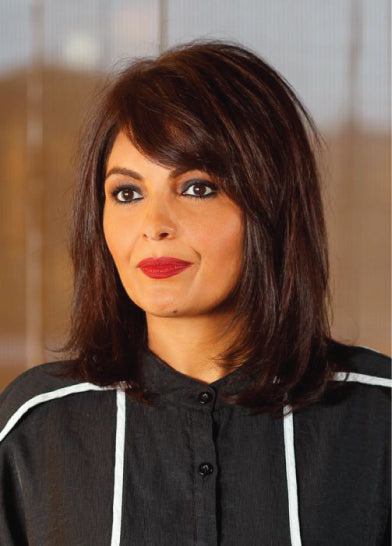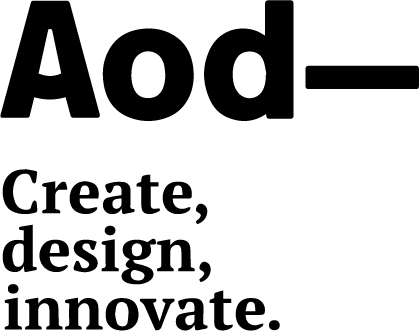
The future of jobs and how AOD is preparing its future graduates
Share
AOD Founder and Chairperson of Design Corp Group of Companies— Dr. (Hon DCL) Linda Speldewinde talks about the education disruption that AOD is heralding in with the move to create extraordinary minds that go beyond a traditional education model & singular thinking. AOD recently announced a radically futuristic series of degrees where students will have the opportunity to study design, Future Tech and Creative Business in convergence with one another. This interdisciplinary higher education offer is the first of its kind in Sri Lanka and responds to the emerging contours of a complex new world with constantly shifting markets with a new generation of designers, technologists and business experts & a realization that Creativity is not only for design heads but for tech & business heads too.
Recently AOD has been speaking a lot about tomorrow’s career landscape and the role of education in responding to that. Where does your grasp of the future of jobs come from? Ours comes from Design thinking and today to drive Creative Innovation, its almost a non starter with no Design or creative thinking. Today Creative thinking is helping resolve hardcore business problems as hardcore business challenges are solved when we look at the problem through everyones eyes. This kind of creativity need to be trained, like you cannot become a tennis player overnight, you need to keep immersing yourself in frameworks and methodologies that ignite that spark and it has to be multidisciplinary to drive multi disciplinary innovation. Most of us use 5-10% of our brains actively. Primarily because we are tuned to doing the same tasks everyday like finance, hr, design etc. Mixing this up a bit with a different routine and new interactions with different functions opens up the gates to creative inflow as we live in this world today where creativity is considered an advantage & not a distraction in a business environment. Being a design centric entity, AOD’s approach to education is always through responding to where the markets are shifting & it was clear that the future of jobs is very different to what it is today. Things were moving in a direction where skills and expertise had to be all-encompassing and interdisciplinary, and we realised that the education models we have today are not preparing the students for this situation. This is why AOD presented a whole new outlook that works for the future & we have developed an AOD 3.0 that will be be housed at the Colombo Innovation Tower.
Can you explain more on this predicted future of jobs?
For example, a significant shift on the frontier between humans and machines when it comes to work, is happening right now from 2018 and leading up to 2022. This means that while mundane, repetitive and mechanical tasks will be handled by machines more and more, while humans will gain higher value in the job market for creative skills that AI still can’t handle. At the same time, it has been highlighted that with technological advances—like ubiquitous internet connectivity, rise of artificial intelligence, widespread adoption of big data analytics and cloud technology—technology is set to dominate our lives and the way we do business. So tomorrow’s professionals need to be technologically geared. At the same time, the way people approach business is changing; the bedrock of successful businesses tomorrow will be innovation—the ability to adapt to things and respond to continually changing situations. So, with all these predictions of the future, we gathered design thinking, tech adeptness, and innovative business thinking as the key drivers of the future; and education focusing on this trifactor, is what AOD is offering its students now.
How do you think Sri Lankan educators should prepare our young people for this future?
I think the changes we all need to make begins with recognising that at the core of the future professional needs to be a thinker—and not just any thinker, but a creative, divergent thinker who can critically problem solve. Everything starts with that. And this is why ‘design thinking’ is at the core of all our study pathways whether it is design, technology or business. Design thinking is not learning how to make things look good; design thinking is the name of the scientific thought process to creatively approach problems and find solutions that actually work. So, educators have a responsibility in offering these skills to students as basic as language or social skills.
So essentially, what you’re saying is that just any tech degree won’t cut it anymore. The future calls for something that trains you to think creatively, innovate and understand business opportunities out there, all at the same time?
Exactly. Because you used the tech example, I’ll use the same. Even the experts at the World Economic Forum have agreed that technology definitely drives business growth, new job creation and augmentation of existing jobs; but they have also rightfully pointed out how this potential can only be fully leveraged with the talents of a motivated and agile workforce who are equipped with futureproof skills to take advantage of new opportunities through creative thinking and a deep understanding of business markets. Same goes for undergraduates in business. If you just qualify with a business related degree, but don’t know what ‘innovation’ really means beyond buzzword used for presentations, you won’t survive the Fourth Industrial Revolution. Similarly, designers or any other professional who don’t understand how to work with technology, how to respond to market opportunities through business thinking, will not make the cut.
So, how will this future of jobs realistically look like in Sri Lanka? What will students signing up for this new kind of education from AOD, expect to graduate as?
So for example, what we are aiming to create are software developers who will be able to work for the apparel industry as part of their design teams to create systems that automate the next season of collections; and designers who have such a great understanding of business that they can curate experiences for the hospitality industry by analysing markets; or a business graduate who can head the innovation department of a big business conglomerate because their training has shown them how to make sense of data on future market behaviours and connect them to available resources and technologies in businesses, or create new opportunities altogether. This is just scratching the surface; for this kind of interdisciplinary professional, there are hundreds of more opportunities out there in Sri Lanka, and millions of job opportunities opening up around the world. If you want to find out more about where this education can take you, and the amazing careers that it will open out for you, AOD will be hosting Extraordinary Minds Open House Weekend during July 20 - 21, with two entire days of free career guidance open for both parents and students.
This future we’re talking about is really not far away; it’s actually already here and taking shape. Now is the time to make a big disruption in education, and AOD is paving the way by creating the extraordinary minds that the future is calling for.

